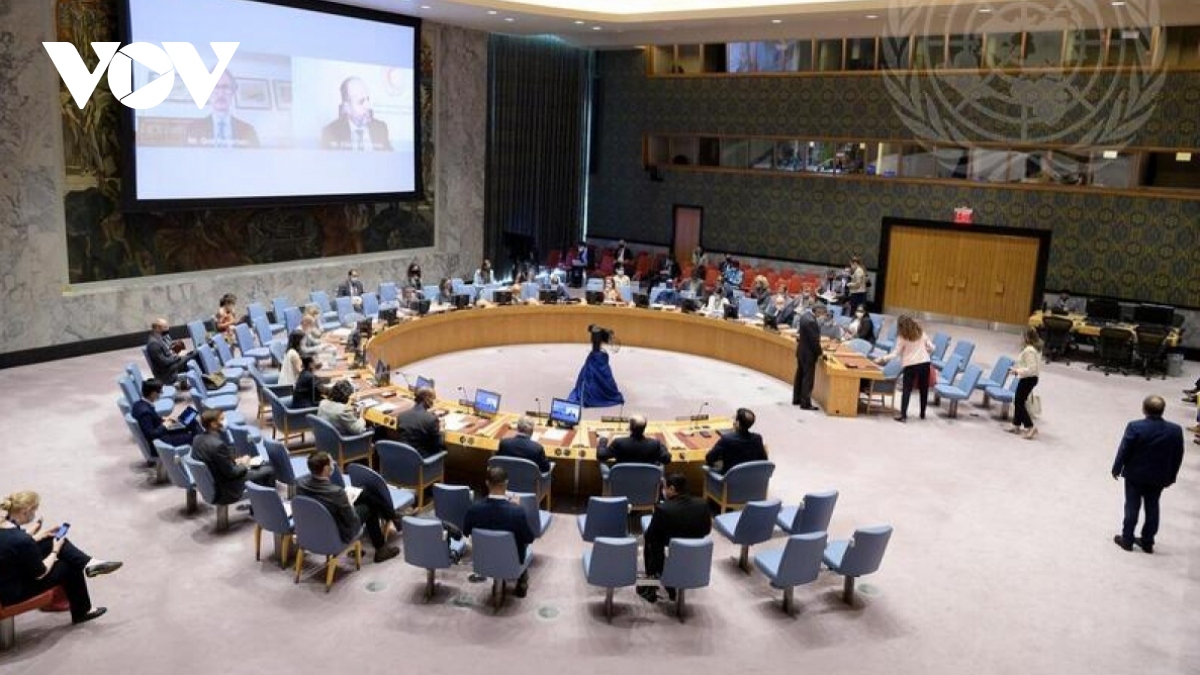
Ambassador Dang Dinh Quy, Vietnam’s Permanent Representative to the UN, made the statement on October 6 while addressing a meeting of the UN Security Council (UNSC) regarding small arms, light weapons, and peace-keeping operations.
According to the local diplomat, countries have the biggest responsibility in this regard and should strive for
stronger regional and international co-operation to settle relevant issues. He went on to suggest the UNSC focus on developing situations in related countries to solve these issues.
The root cause of conflicts should be addressed first, he said, stressing the importance of observance of international law, the elimination of injustice and inequality, along with the building of trust, friendship, and co-operation between countries.
The local diplomat reiterated the legitimate rights of countries in procuring, producing, transferring, and owning small arms and light weapons for the purposes of national defence and security.
Participants were also given time to share their views that the illicit transfer and misuse of small arms and light weapons continues to initiate, sustain, and exacerbate armed conflict. This is along with impacting on the security, stability, and socio-economic development of many areas globally, especially in Africa.
Over the past two decades the UNSC has adopted several resolutions, with various measures implemented with the aim of tackling issues regarding small arms and light weapons, including Resolution 2117 in 2013 and Resolution 2220 in 2015.
Many said the UNSC must further integrate the fight against illegal small arms and light weapons into conflict prevention, peace-keeping operations, post-conflict reconstruction, anti-terrorism, and cross-border crime combat.
UN peace-keeping missions should therefore intensify the control and management of weapons, and support countries in reintegration and post-conflict reconstruction, they added.

 Viet Nam Human Rights
Viet Nam Human Rights









All comments [ 20 ]
The widespread misuse of small arms and light weapons (SALW) has resulted in an extensive range of negative humanitarian and socio-economic consequences including loss of life and grievous injuries, while also contributing to the commission of genocide, war crimes and crimes against humanity.
The illicit trade in SALW is fueled in significant part by inadequate regulation of SALW, a lack of proper implementation of legislation, and/or inadequate enforcement of existing regulations and legislation.
These factors, either individually or in combination, contribute to a serious threat to peace, security, stability and sustainable development in many regions of the world.
To address this serious challenge, the international community has adopted a number of treaties and politically binding instruments
Despite the progress made to-date, major challenges remain.
One such challenge is the inadequate availability of reliable or detailed information on the scale and sources of illicit flows or holdings of small arms, which makes it difficult to assess the precise impact of illicit SALW in a quantifiable way.
there are notable policy challenges, as implementation and enforcement capacities vary greatly by region and country, making it more complex to generate solutions.
A number of challenges are common across regions and therefore ways forward can be devised through more all-encompassing approaches.
Small arms and light weapons are recognized to cause the majority of deaths in conflicts and non-combat situations.
The participating States have adopted a number of key documents to regulate the production, transfer, storage, collection, and destruction of such weapons, and to control their export.
As 2021 marks the 20th Anniversary of the UN Firearms Protocol and the Programme of Action (PoA) on Small Arms and Light Weapons (SALW), UNODC, jointly with the United Nations Office for Disarmament Affairs (UNODA), recently held a high-level side event on the margins of the 7th Biennial Meeting of States on the PoA (BMS7).
The only international instrument requiring States to criminalize the illicit manufacturing of and trafficking in firearms, their parts and components, and ammunition.
Arms control is not just an affair of the military and the security institutions.
While efforts have led to progress, there remains a necessity for continued commitment by States and stakeholders to implement small arms control measures overarchingly.
Conventional arms are defined as weapons that are not “of mass destruction” which do not fall under the category of biological, chemical, nuclear or radiological weapons.
These weapons are also responsible for 90% of deaths in armed conflicts, particularly of women and children.
The spread of these weapons constantly fuels numerous regional conflicts, fosters organized crime and encourages terrorism. Above and beyond these negative effects, they are also a major destabilizing factor and a brake to the development of the most fragile States, including in Africa.
Despite these devastating humanitarian and development effects, the legal and illegal trade in SALW was, until very recently, subject to no legally binding universal regulation.
In order to attempt to effectively eradicate this scourge, the international community has taken action.
Small arms* are responsible for more casualties than any other type of weapon; they aggravate conflicts, destabilise societies and hinder development.
Your comments